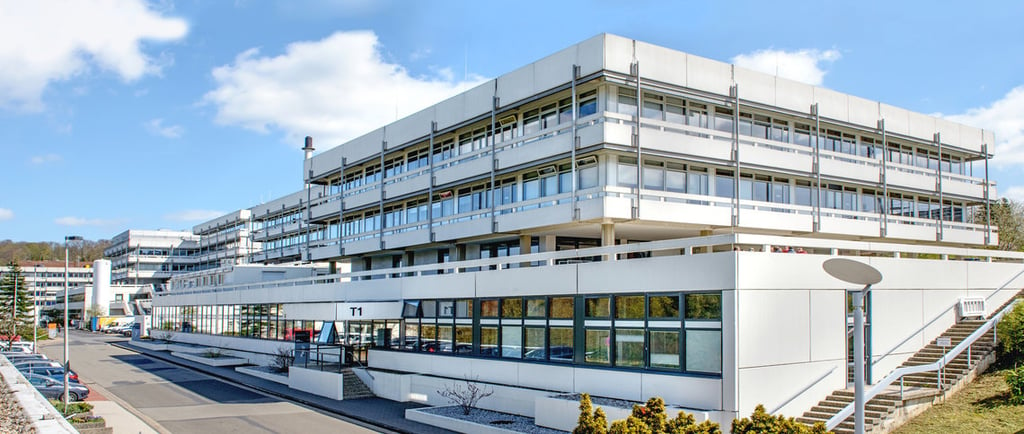

Introduction:
Nestled within the scientific landscape of Germany is the Max Planck Institute (MPI), an eminent network of research institutions that stands as a testament to the nation's commitment to advancing knowledge. Founded in 1911, the Max Planck Society has grown into a consortium of institutes, each dedicated to pushing the boundaries of scientific discovery. This essay explores the significance of the Max Planck Institute, its contributions to diverse fields, and its pivotal role in shaping the scientific landscape on a global scale.
Foundation and Mission:
The Max Planck Institute owes its inception to the visionary physicist Max Planck, who sought to establish a unique research institution that transcended disciplinary boundaries. The overarching mission of the Max Planck Society is to conduct groundbreaking research, fostering scientific innovation and contributing to the advancement of human knowledge.
The institutes operate independently, allowing researchers the flexibility to explore diverse topics and pursue innovative avenues of inquiry. This decentralized structure encourages a dynamic and collaborative environment, emphasizing excellence in research across various scientific disciplines.
Excellence in Research:
At the heart of the Max Planck Institute's identity is its unwavering commitment to excellence in research. The institutes cover a vast array of disciplines, including physics, chemistry, biology, neuroscience, and the social sciences. This breadth allows researchers to engage in interdisciplinary collaborations, fostering a holistic approach to scientific inquiry.
The Max Planck Institutes have consistently produced groundbreaking discoveries and innovations, contributing to humanity's understanding of the natural world and the complexities of human behavior. From fundamental physics to cutting-edge medical research, the MPIs are at the forefront of scientific advancement.
Interdisciplinary Collaboration:
One of the distinctive features of the Max Planck Institute is its emphasis on interdisciplinary collaboration. Researchers from diverse fields come together to tackle complex scientific challenges, fostering a cross-pollination of ideas and methodologies. This collaborative ethos not only enriches individual research projects but also contributes to the emergence of novel insights and methodologies.
The interdisciplinary nature of the Max Planck Institute reflects the interconnectedness of scientific disciplines in addressing the complex questions of our time. By breaking down silos and encouraging collaboration, the MPIs create an environment where scientific breakthroughs can flourish.
Global Impact:
The Max Planck Institute has a profound global impact, influencing the direction of scientific research worldwide. The institutes actively engage in international collaborations, welcoming researchers from across the globe and contributing to collaborative projects with institutions on every continent.
Through publications, conferences, and collaborative research initiatives, the MPIs contribute to the global scientific community. The research findings from these institutes resonate not only in academic circles but also have practical applications, influencing industries, policies, and the advancement of technology.
Training Future Generations:
In addition to its research endeavors, the Max Planck Institute plays a crucial role in training the next generation of scientists. Doctoral students, postdoctoral researchers, and visiting scholars from around the world converge at the MPIs to engage in cutting-edge research and benefit from the mentorship of leading experts in their respective fields.
This commitment to nurturing young talent ensures a continuous flow of fresh perspectives and innovative ideas within the scientific community. The Max Planck Institute serves as a beacon for aspiring scientists, providing them with an unparalleled environment to cultivate their skills and contribute to the frontier of scientific knowledge.
Conclusion:
In conclusion, the Max Planck Institute stands as a beacon of scientific excellence, embodying the spirit of inquiry and discovery. From its foundation by Max Planck to its present-day network of institutes, the MPIs have consistently pushed the boundaries of knowledge, fostering interdisciplinary collaboration, and making a significant impact on the global scientific landscape. As a driving force for innovation and a training ground for future scientific leaders, the Max Planck Institute continues to shape the trajectory of scientific research, inspiring generations of researchers to unlock the mysteries of the natural world.
Read also - https://www.admit360.in/university-of-helsinki-academic-excellence-blog
